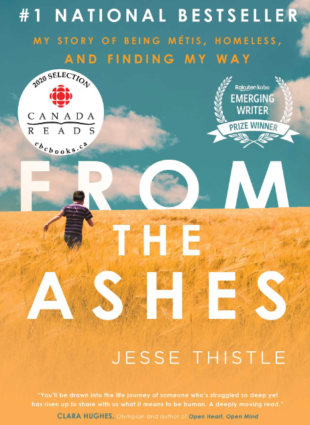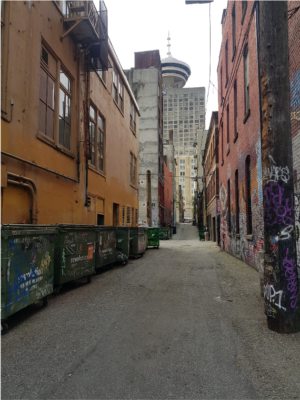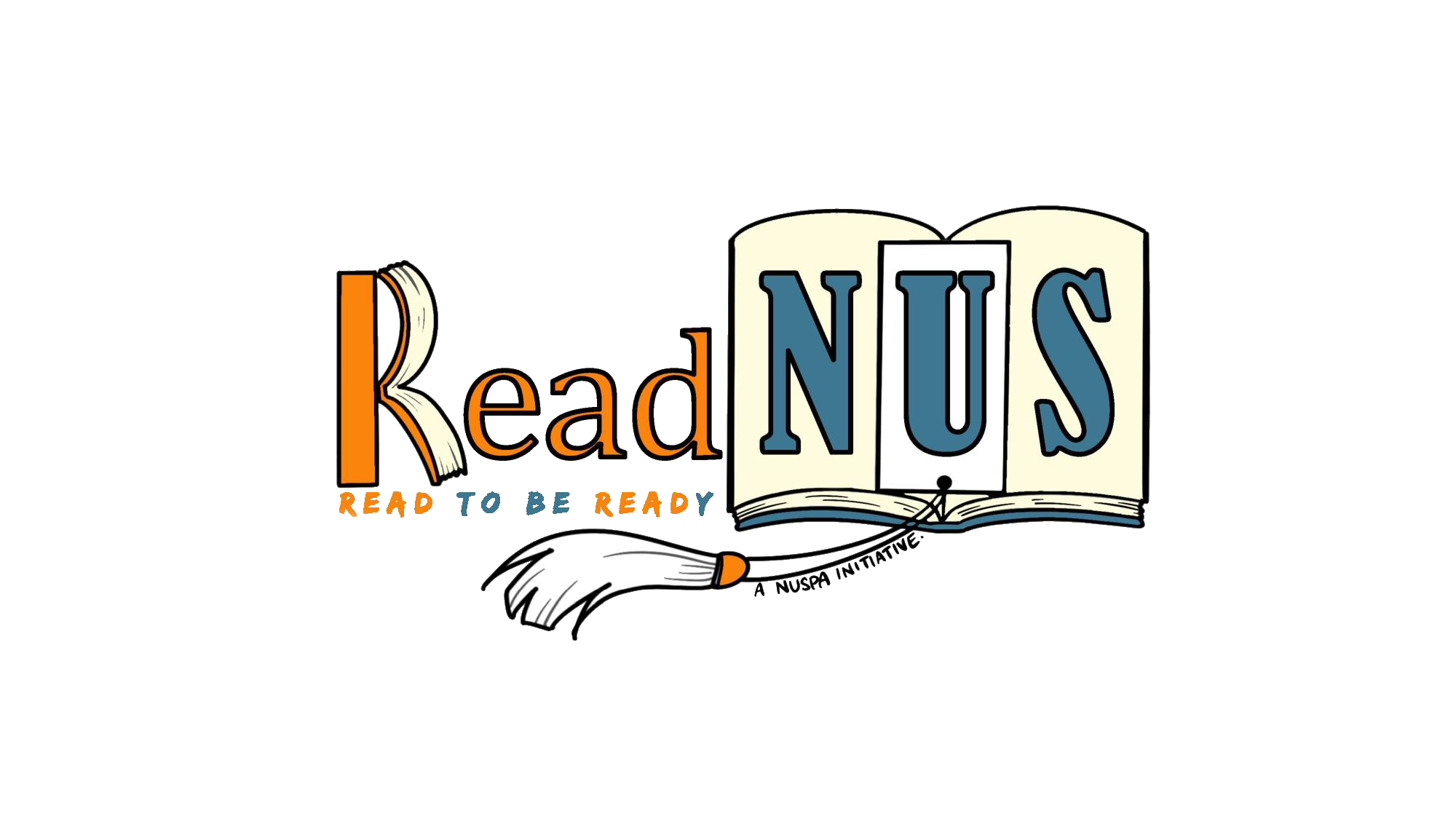Book Review: From The Ashes
In From the Ashes, Jesse Thistle brings readers on a personal journey from being abandoned, becoming homeless and coming full circle in finding his way and achieving academic success as the first student in his university to clinch the Canada Governor General’s Silver Medal.

Then out of nowhere, Dad yanked with a dash, swung by my legs, he chucked me right in the trash!
And that begins the chapter where Jesse Thistle recalls being abandoned by his father as a young child, often dreaming of being discarded at birth in the many years ahead. The youngest of three children born to a young Métis-Cree mother and an Algonquin-Scot father who identified himself as White (The Métis are people with mixed Indigenous and European ancestry, while Cree and Algonquin are other groups of indigenous people in Canada), Thistle describes how historical legacies of discrimination by the Canadian government contributed to his disadvantaged childhood and journey towards homelessness and drug addiction. His maternal Métis ancestors were uprooted from the communities they lived in and were forced to live in poverty in shacks built by the roadside on lands owned by the government. What did not help further was the discriminatory attitudes of the predominantly white population against indigenous people in the past, which made it harder for them to obtain the resources they needed to succeed economically. Although Thistle enjoyed a good relationship with his maternal grandparents, his father was a drunk and violent man who often quarreled with his mother and exerted violence on his children, and his mother eventually decided to live separately from his father, bringing the children along with her. However, Thistle’s life spiraled downwards when his father unexpectedly showed up and convinced his mother to entrust the children with him for a few months. At the tender age of four, Jesse and his siblings were soon forced to assist their father in his criminal endeavors and had to endure hunger when money became tight. His father did not return home one day and they were sent to a children’s home, enduring a harrowing stay at a foster home for a period before being picked up by his paternal grandparents.

While he received much care from his paternal grandparents at their new home, the unforgiving school environment, negative influence within the neighbourhood, and his grandfather’s “tough love” pushed him further towards the edges of society. His sense of being deprived of the paternal love he so needed made him jealous of other kids who had more emotionally and materially, which coupled with the childhood trauma of not having enough to eat, drove him to commit his first armed robbery threatening a younger child with a knife. All along, the notion of rejecting his heritage looms uneasily in the background-he denied his heritage to others by claiming that he was an Italian, even as the words of others that he would end up as a “drunk Indian” (Indigenous person) affected his self-esteem, along with his poor grades and inability to read and write well. This turns into a self-fulfilling prophecy when he drops out of school before graduating, indulges in drug parties and is eventually forced to leave home when his drug usage is discovered. Thistle’s accounts of the next 10 years seem like a whirlwind, as he is arrested several times for crimes, enters and leaves homeless shelters, and couches in at the houses of relatives and friends who are willing to take him in, including a kindhearted woman named Olive who opens her doors to the homeless and would later play a pivotal role in his recovery from drug addiction. He even gets involved in Toronto’s “Crime of the Century” by testifying against two other homeless youths who robbed and killed a taxi driver on New Year’s Day in 2000 and who had tried to frame him for the murder by passing him crucial evidence of the crime. What brings him full circle to reconciliation, however, is an incident where he is almost killed for stealing a bike and realizes that he would die if he continued living his life as it was. With the support of many people, he completes his General Education Diploma and eventually becomes an expert on homelessness and Métis history.


In all, From the Ashes ranks as one of the foremost biographies which I have read thus far. Thistle’s style of writing brings readers directly into his thoughts and reflections at the different stages of life which he narrates and are enhanced by several poems before the start of chapters which encapsulates his experiences and feelings. In the part where he narrates his descent into addiction to the extent that he had lost much of his memory and self-identity, I almost felt like I was in his shoes, homeless, lost, and hungry in a large city. Something that I have also learnt from the book would be the lingering effects brought about by Colonialism and discrimination as the circumstances that Thistle finds himself in are shaped largely by these factors. However, my biggest takeaway from the book would be his determination in overcoming his alcoholic and drug addiction to obtain outstanding results in his undergraduate studies in history as an older learner, despite the number of times he had failed to curb his addiction and his struggles in studying previously. If anything, I was confused by the timeline of the certain experiences which he had as he dives straight into them sometimes without mentioning the year or his age when that happened. In hindsight though, doing so allows Thistle to achieve the intended effect of bringing the reader’s attention straight into such experiences without distracting them with such minor details. While From the Ashes is not your regular enthralling fictional read or intellectual nonfiction book on politics or history, it certainly is an excellent account that sheds light into the issue of homelessness and addiction, and its uplifting conclusion makes it a must-read to be included in this summer’s reading list.
By Bryan Chang
ReadNUS Team Member
From the Ashes is available at Amazon, and copies can also be borrowed at NLB Overdrive.
